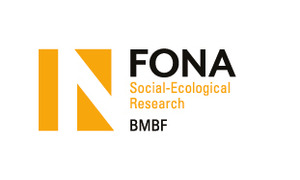Today, the digital platform exists for almost all areas of life. The platform is thereby always the intermediary between supplier and customer. From a socio-ecological perspective, this "platformisation" must be seen critically. The social perspective shows an increasing dependence on a few platform companies and a restriction of the negotiating power of external traders and service providers. For the ecological perspective, initial positive expectations of a more efficient use of resources are disappointed in practice. The on-demand culture and the placement of personalised online advertisement lead to additive consumption and promote additional resource use. There are two counter-movements to this development: on the one hand, platform cooperativism, which pursues the goal of placing social-ecological values at the forefront of platforms. On the other hand, the Free/Libre and Open Source Software (FLOSS) movement exists, which focuses on forms of ownership, transparency and rights of use of software. The two movements share the goal of bringing the platform or its software into joint ownership. Even if the merging of both movements could offer special potentials for social-ecological platformisation, the movements often still act separately from each other. The article highlights possible synergies between the two movements and asks how a social-ecological platform could be created.
+++
Alle Macht den Plattformen? Genossenschaften, Freie-Software und die Möglichkeit einer sozial-ökologischen Plattformisierung
Die digitale Plattform existiert heute in nahezu allen Bereichen des Lebens. Dabei bildet die Plattform stets den Intermediär zwischen Anbietern und Nachfragern. Aus sozial-ökologischer Perspektive ist diese „Plattformisierung“ kritisch zu sehen. So kommt es aus sozialer Sicht zur zunehmenden Abhängigkeit von einigen wenigen Plattformunternehmen und einer Einschränkung der Verhandlungsmacht von externen Händlern und Dienstleistern. Auch aus ökologischer Perspektive werden zunächst positive Erwartungen der effizienteren Ressourcennutzung in der Praxis enttäuscht. Die On-Demand-Kultur, sowie Schaltung personalisierter Onlinewerbung führen zu additivem Konsum und fördern zusätzlichen Ressourcenverbrauch. Zu dieser Entwicklung gibt es zwei Gegenentwürfe: einerseits den Plattform-Kooperativismus, der das Ziel verfolgt, anstelle von Profit, sozial-ökologische Werte bei Plattformen in den Vordergrund zu stellen. Und andererseits die Free-/Libre-and-Open--Source-Software-(FLOSS)-Bewegung, die sich auf Eigentumsformen, Transparenz und Nutzungsrechte von Software fokussiert. Die zwei Bewegungen teilen das Ziel, die Plattform oder ihre Software in gemeinschaftlichen Besitz zu bringen. Auch wenn die Zusammenführung beider Bewegungen besondere Potenziale für sozial-ökologische Plattformisierung bieten könnte, agieren die Bewegungen noch häufig getrennt voneinander. Der Artikel stellt mögliche Synergien der beiden Bewegungen heraus und fragt wie eine sozial-ökologische Plattformisierung gelingen könnte.
Published in: Höfner, Anja & Vivian Frick (eds.). 2019. Was Bits und Bäume verbindet. Digitalisierung nachhaltig gestalten, pp. 120-123.
Authors: Kludas, Santje; Pentzien, Jonas; Wolff, Clara; Piétron, Dominik.
Publication Date: 2019
Type: Book Section
Publisher: oekom-Verlag
Link: https://www.oekom.de/buch/was-bits-und-baeume-verbindet-9783962381493?p=1
15/07/2019


